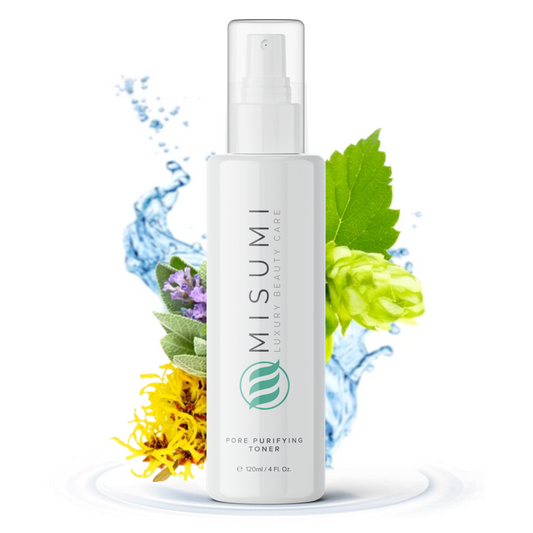When it comes to sun protection, choosing the right product isn’t just a matter of SPF – particularly for those with sensitive skin. For many, exposure to harmful UV rays can lead to more than just sunburn; it can also exacerbate existing skin conditions, provoke irritation, or trigger allergic reactions. Therefore, understanding the specific needs of sensitive skin is vital in selecting the right sun protection.
Understanding Sensitive Skin
Sensitive skin can manifest in various ways, from redness and irritation to dryness and breakouts. Factors contributing to sensitivity include genetics, environmental conditions, and the use of certain skincare ingredients. This makes it essential to choose sun protection meticulously, avoiding harsh chemicals that could worsen skin issues. The right products can help shield the skin from UV damage while maintaining its integrity.
Key Ingredients to Look For
When searching for sun protection, consider formulations enriched with beneficial ingredients that cater specifically to sensitive skin:
• Mineral Filters: Zinc oxide and titanium dioxide are often well-tolerated by those with sensitive skin. They work by sitting atop the skin and physically blocking UV rays, rather than absorbing them like chemical sunscreens.
• Soothing Agents: Ingredients like aloe vera, chamomile, and calendula can calm and nourish irritated skin. Look for formulations that contain these soothing elements alongside sun-blocking agents.
• Fragrance-Free Options: Fragrances can trigger allergic reactions and irritations. Choosing fragrance-free products can significantly reduce the risk of adverse effects.
How to Choose the Right Product
When selecting a sunscreen, it's helpful to consider the specific needs of your skin. Here are some factors to keep in mind:
• Broad Spectrum Protection: Ensure the sunscreen offers protection against both UVA and UVB rays. Both types contribute to skin damage, including premature aging and skin cancer risks.
• SPF Rating: An SPF of at least 30 is generally advisable, particularly for those who spend extended periods outdoors.
• Water Resistance: For added durability, especially during hot days or physical activities, opt for water-resistant formulas.
If you're on the lookout for products that meet these criteria, there are a variety of skincare-safe sun defence options that can offer robust protection without irritating sensitive skin. These products are formulated with gentle ingredients, allowing you to enjoy the sun's warmth without fear of adverse reactions.
The Importance of Daily Protection
Even on overcast or cooler days, UV rays still penetrate the atmosphere and can lead to skin damage. This is why integrating sun protection into your daily skincare routine is non-negotiable, especially for sensitive skin. Everyday exposure, even at seemingly harmless levels, accumulates over time and can lead to long-term skin issues.
Application Tips
To maximise the effectiveness of your sunscreen, pay attention to how you apply it:
1 Use Generous Amounts: Most adults require approximately a shot glass full (about 30ml) to cover the entire body effectively.
2 Apply Before Sun Exposure: Sunscreen should be applied at least 15 to 30 minutes before heading outdoors to allow for proper absorption.
3 Reapply Regularly: With any outdoor activity, it's crucial to reapply every two hours, or more frequently if you're swimming or sweating.
4 Layer Wisely: If you use other skincare products, apply your sunscreen last in your routine to allow it to form an effective barrier against UV rays.
Common Myths About Sunscreen
Despite awareness around the need for sun protection, several misconceptions persist:
• Myth: You Only Need Sunscreen on Sunny Days: As mentioned earlier, UV rays can be harmful on cloudy or even winter days. Protect your skin year-round.
• Myth: Darker Skin Doesn’t Need Sunscreen: While it’s true that darker skin has more natural protection against UV rays, it is still susceptible to damage.
• Myth: SPF 100 Offers Double the Protection: The difference between SPF 30 and SPF 50 is marginal. SPF 30 blocks about 97% of UVB rays, while SPF 50 blocks 98%. Thus, higher SPF values do not provide a proportionally greater level of protection.
The Role of Other Skincare Products
Integrating sun protection into a holistic skincare regimen can amplify its effectiveness. Using gentle cleansers, moisturisers, and treatments designed for sensitive skin can help fortify the skin's barrier before applying sunscreen.
Antioxidants, such as vitamins C and E, can also protect against free radical damage caused by UV exposure. By carefully selecting products, individuals with sensitive skin can create a protective, nourishing routine.
In Conclusion
Choosing sun protection suited for sensitive skin is essential not only for immediate comfort but for long-term skin health. The stakes are higher for those with sensitive skin, but with knowledge and the right product selection, it's entirely feasible to enjoy the sun without compromising your skin's wellbeing.
As you navigate the extensive landscape of sun protection, consider exploring options like those offered through various skincare lines that specialise in gentle formulations. Finding your perfect sunscreen shouldn't be a trial-and-error process; instead, it should empower you to embrace the outdoors confidently and happily, knowing your skin is well-protected.








